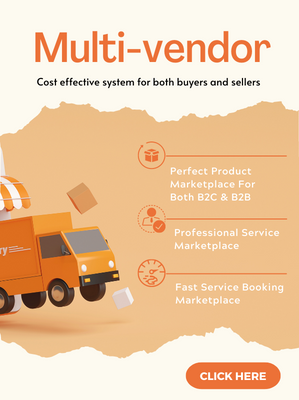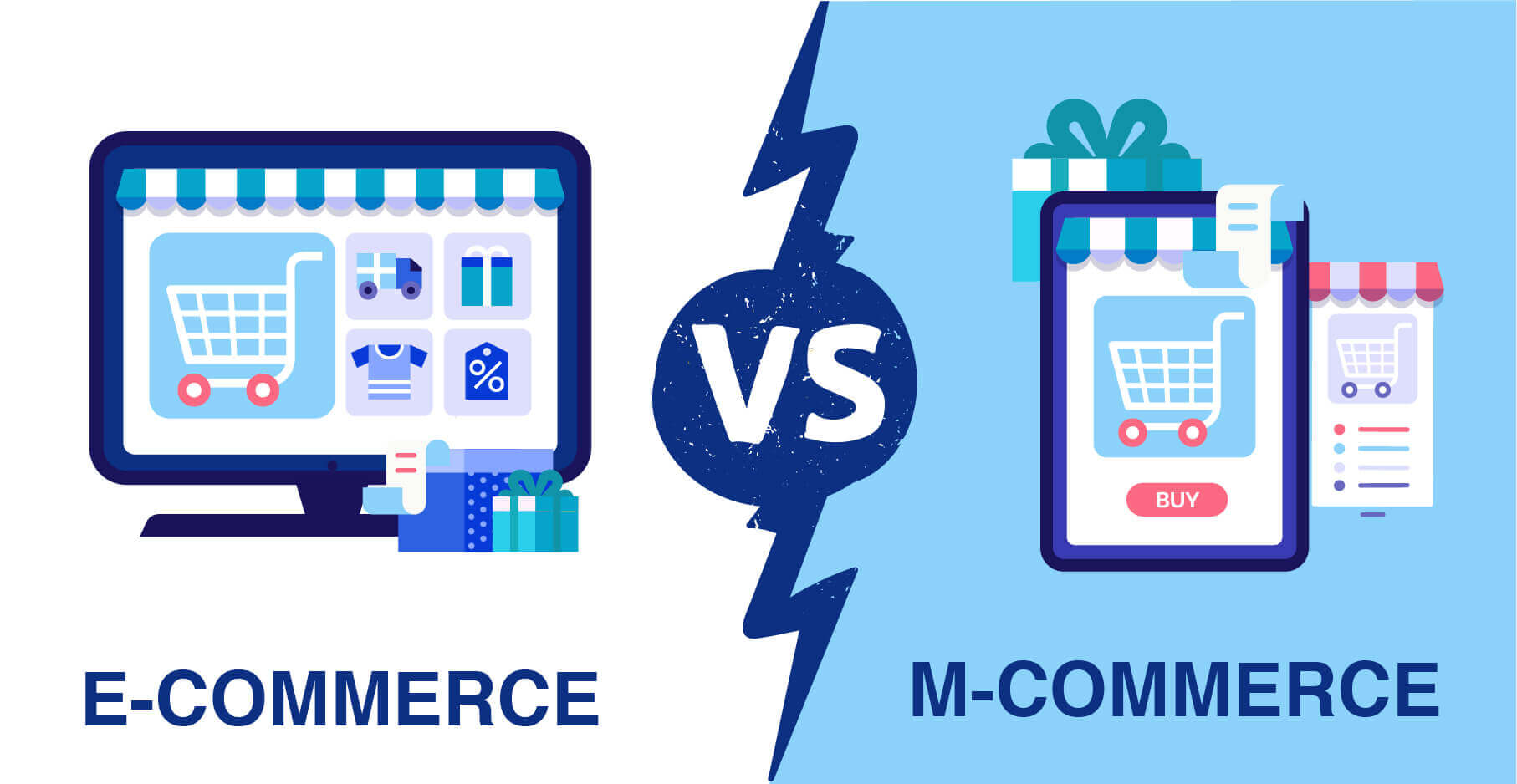It can be difficult to decide between an eCommerce platform vs marketplace. It might be challenging to choose which is the better decision for your business because both have advantages and disadvantages. To help you choose the best option for you, we will discuss the differences between eCommerce platforms vs marketplace in this blog.
ECommerce platform
What is an eCommerce platform?
eCommerce refers to transactions between a single vendor and many customers over the Internet. The vendor is responsible for setting up and maintaining eCommerce websites, as opposed to marketplaces, which take care of supporting the reliability and functionality of their websites. Most importantly, a client should be able to browse products on an eCommerce site, add items to their cart, and then check out.
If a business owner decides to start an online store from scratch or add one to an existing one, an eCommerce platform might be a lifesaver. You might want to learn more about some of the most popular eCommerce platforms, such as BigCommerce, Magento, WooCommerce, Shopify, etc.
Advantages and disadvantages of the ECommerce platform
Advantages
1. It enables full control of the website
B2C or B2B e-commerce platforms often provide templates for business owners to get started. So it is easier for businesses to build their own e-commerce website from scratch. However, if you are an experienced developer, you can decide to create your own website using your expertise and talents.
You have full control over the operation, appearance, and navigation of your site. Therefore, it allows you to modify the website to offer the greatest user experience. You can also integrate with technologies that are already on the market to increase sales or engage clients, such as by adding a live chat widget to offer prompt client assistance.
2. It enables businesses to boost awareness of their own brands.
Selling on an e-commerce website gives you the opportunity to develop your own style, including the voice and tone as well as the visual components, and build your brand. It gives your company personality and sets it apart. There won’t be any “suggested products” from competitors to mislead your visitors.
3. It is easier to gather customer information for marketing campaigns.
E-commerce websites give owners the ability to gather data and communicate with customers directly, whereas marketplaces have limited access to customer analytics. It is useful when you want to analyze buyer behavior for a better understanding and to enhance the user experience on your website.
Retargeting your clients, whether they are site users who view your ads or those who have made purchases, is one of the benefits of having an e-commerce website. You can use the resources at your disposal to contact clients who abandon their shopping carts with automated messages.
Disadvantages
1. It can take a lot of time and effort to set up.
Making your own website is something you can do. You can do it as simple or complex as you like. Thanks to the development of eCommerce platforms and do-it-yourself tools, launching a website has never been easier. However, you might still run into technological issues or, at the very least, time limitations.
There are many stages, including choosing a domain name and hosting company, setting up an online store and a shopping cart, and creating content for the website. Besides that, the website will still need labor to be set up and maintained.
2. It requires effort to get people to visit your website.
Your website won’t always draw in customers or even be found right away, for that matter. Marketing efforts are needed to set up an efficient promotional campaign.
After they have seen your website, you must now convince them to buy your product. Furthermore, when designing your website with users, you should consider the interesting message, button placement, mobile experience, and other elements.
The top eCommerce platforms for your business
Let’s take a brief tour of Shopify, WooCommerce, Magento, and BigCommerce, the top eCommerce platforms for your online store.
Shopify
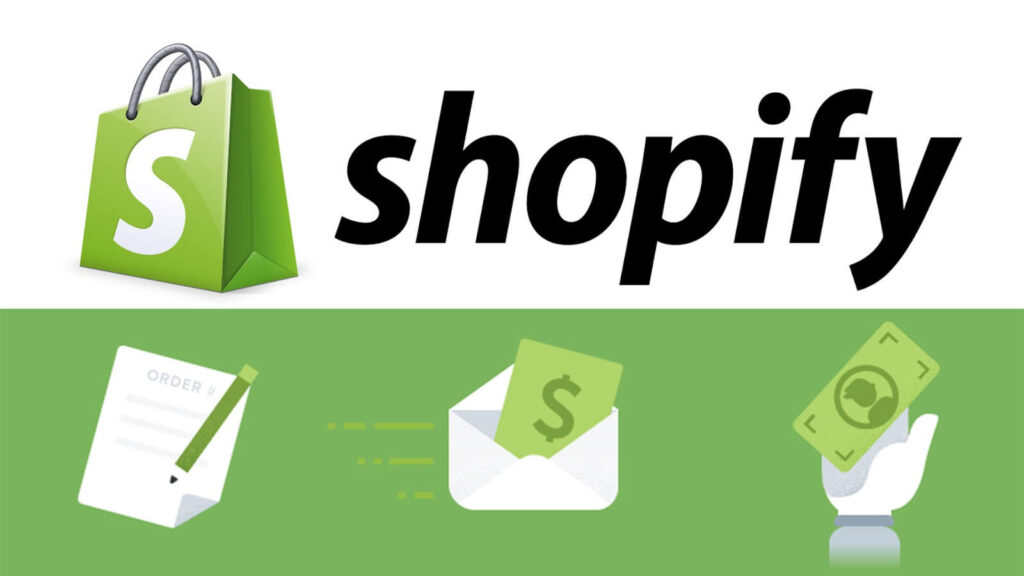
One of the top hosted solutions available is Shopify. Shopify is preferred by retailers worldwide because of its fantastic eCommerce tools and a range of extensions. Additionally, this product is really easy to use and reasonably priced.
Woocommerce
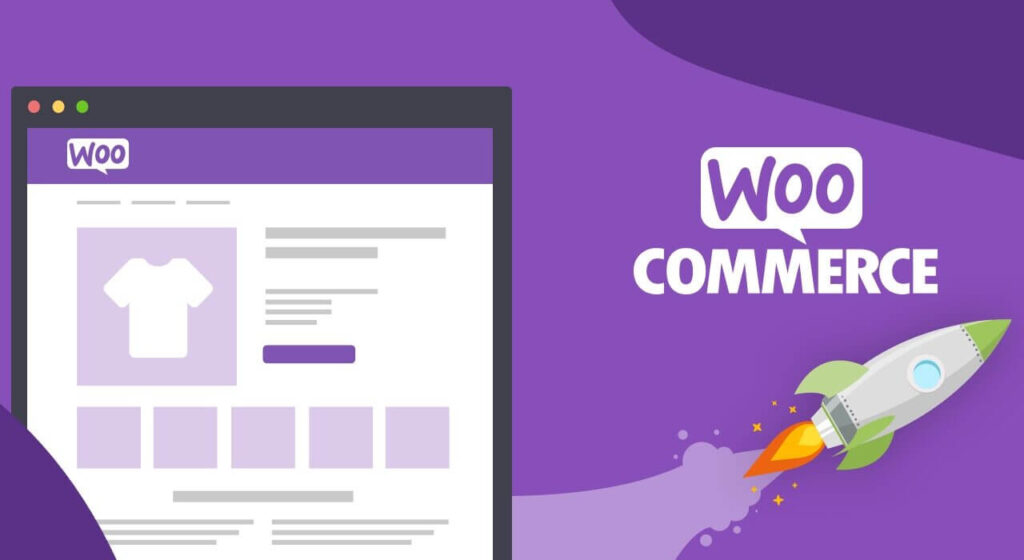
WooCommerce is renowned for its low cost, strong customizability, and incredible eCommerce features. In addition, WooCommerce’s theme store has more than 1000 themes and templates available to users. You may launch a beautiful and effective WooCommerce store for around $20 to $100.
Magento
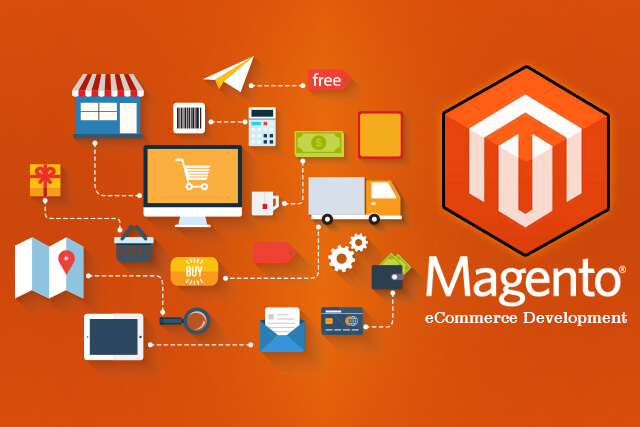
Because of its great scalability, high customizability, and strong built-in features, Magento has earned a well-deserved reputation. Due to its complex framework, this solution is better suited for medium- to large-sized organizations. A good Magento store will cost between $15k and $100k.
Bigcommerce
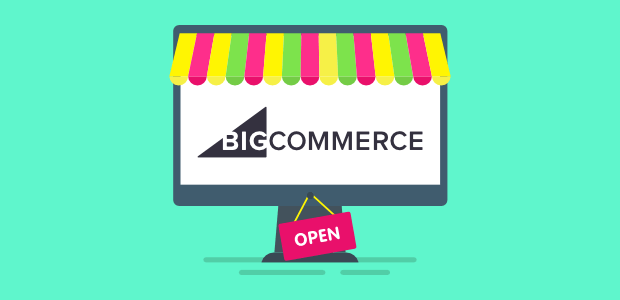
BigCommerce is an eCommerce platform that enables you to build an online store and sell on many platforms. Due to its zero transaction costs and scalable solutions, it is ideal for high-revenue and developing businesses that need a scalable sales platform. Its starting monthly price is $29.95.
Marketplace
What is a marketplace?
A website that sells goods from numerous sellers is called a marketplace. The owner of the marketplace does not own any stock. Instead, it is their responsibility to facilitate transactions and display other people’s products. The three parties involved are the marketplace administrator, the buyer, and the seller. As you predicted, marketplaces earn money by either charging a fixed membership fee, a commission on each transaction, or both.
There are a ton of online marketplaces available today, including those from Amazon, eBay, Etsy, Walmart, and Alibaba,… Setting up your store is usually extremely simple on marketplaces. Moreover, some of them let you sign up using your Facebook account.
Advantages and disadvantages of the marketplace
Advantages
1. It attracts more traffic and audience engagement
Particularly those mega-sized marketplaces are the assurance of traffic and audience engagement. For example, Amazon. In 2020, there will be 200 million paying Amazon Prime subscribers worldwide. Besides that, there will be more than 10.19 billion shares of AMZN outstanding. It means that by using Amazon to sell their goods, companies can reach millions of Internet users and perhaps increase their revenue.
2. Fast and simple to set up
You can start selling on marketplaces without having any technical knowledge. The platform is developed and maintained by the marketplaces’ own professionals. Therefore, they have everything set up for business owners like you. Simply up for an account and begin adding your products.
3. Lower cost to set up
An e-commerce website’s development might be expensive. In case you need a team of experts to complete the task, consider the costs you will have to pay the platform as well as the cost of hiring web developers and designers. In contrast, marketplaces enable you to reduce employment costs.
You pay fees to marketplaces at a reduced rate at first. For instance, whereas Amazon charges Individual plan customers $0.99 per item sold plus additional selling costs, eBay charges between 10% and 15% of the total value once your item sells.
Disadvantages
There are other competitors on the same website.
Although your product is unique, several others with comparable qualities are competing for the attention of your potential customers. In a crowded market, your product might not necessarily stand out.
Additionally, your competitors may advertise their products on your pages to draw buyers who view your listings.
You could not even be recognized by the customers who buy your products.
The buyer will remember the market, not your brand, the next time they buy your product. In most markets, the merchandise takes priority over the sellers.
Individual brands receive very little, if any, personalization. As a result, it can be difficult to raise brand awareness and recognition and, ultimately, differentiate your business.
You cannot compile a database of clients for marketing campaigns.
Marketplaces restrict vendors from contacting customers outside the website since they serve as a middleman. Therefore, you cannot provide your customers with future incentives, information about new items, or even just a simple reminder that your item is ready in order to promote additional purchases. As a result, you are unable to make a profit from previous clients.
The top marketplaces for your business
Amazon
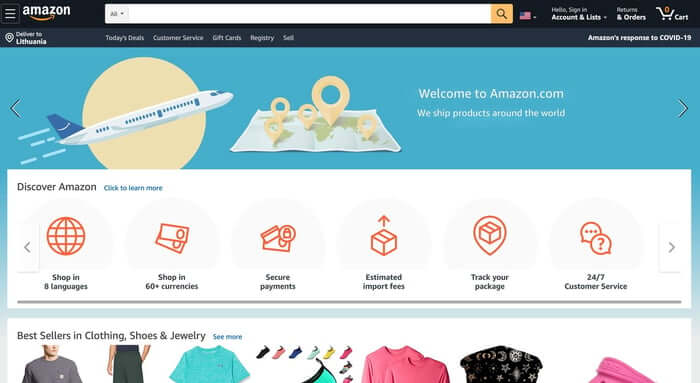
The largest online retailer in the US is Amazon. This marketplace is renowned for its fantastic shipping service and first-rate customer care. The vast customer base of Amazon makes it a potential investment even though opening a new store is not that simple.
eBay
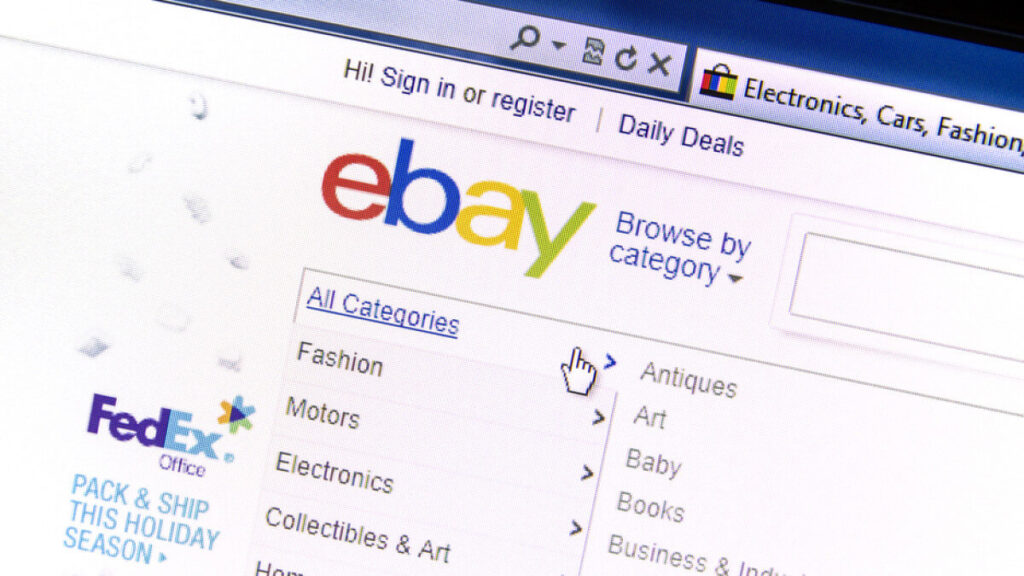
A global e-marketplace called eBay offers C2C online commerce services. With eBay’s auction platform, you can practically sell anything there. eBay is well-known for its excellent “Buy it now” shopping options, online classified ads, and online event ticket trading.
Etsy

Customers can find distinctive and inventive goods on Etsy for a reasonable price. Etsy draws 3 million sellers and more than 50 million active shoppers as a result in 2022. You won’t have to pay anything to start a new Etsy shop thanks to the low cost.
Walmart

This marketplace runs both an online marketplace and a global network of physical stores. Walmart is well-known for its “everyday low prices” policy and extensive product selection; you can find anything there. This e-commerce behemoth is ranked as the second most well-known market in the US.
Differences between eCommerce platform vs marketplace
User engagement and traffic
This is the first difference between the eCommerce platform vs the marketplace we want to mention in this article. Marketplaces’ main objective has always been to connect transactions between buyers and sellers. The marketplace’s qualities offer a wide range of product categories and more website traffic. Therefore, it reaches a larger target audience.
In contrast, it is harder to get visitors to stay on an eCommerce website. The website needs a lot of time and money to be able to draw in visitors. Even if you have a lot of experience, you can still be focusing on the wrong target audience.
Brand recognition and marketing
The second difference between the eCommerce platform vs marketplace is brand recognition and marketing. Vendors in marketplaces have limited to no contact with the customers. Selling your goods or building customer loyalty and brand recognition are difficult tasks. Another significant disadvantage of online marketplaces is the lack of direct access to customer data and conversations. Furthermore, the marketplace is more likely to be remembered by returning customers than the brand.
Besides that, eCommerce websites have complete access to all customer analytics. Additionally, they might contact with clients directly to inform them of promotional events and new items. Analyzing your customers’ online behavior will help you better understand their behavior.
Furthermore, by running an eCommerce website, you also can reach target visitors with advertisements or clients who have already made purchases from you. Thus, you can stay in touch in the future.
Scalability
Looking at the details of eCommerce platform vs marketplace, we can see that owners of marketplaces are less likely to lose money than owners of eCommerce websites. When store owners sell on marketplaces, they don’t buy or sell anything, significantly increasing the possibility for the business to expand. Because they may easily reach economies of scale, marketplaces can expand more quickly than eCommerce websites.
However, an eCommerce website requires more time to scale up. In fact, retailers need to buy more product inventory and find more storage space. More labor will be hired in order to handle, classify, store, and ship all of the products. Therefore, it could lead to a rapid rise in your costs.
Inventory tracking
Because online marketplaces provide as a venue for e-merchants to display their products and engage with customers, they do not keep inventory. Fortunately, there is no danger if items don’t sell either. Because you do not have to pay the expense of keeping an item in stock that is not selling when a product has no traffic; the seller is responsible for removing it.
On the other hand, in case you run an eCommerce website. So you can have trouble maintaining inventory unless you use drop shipping to meet client demand. In the lack of these updates, you will need to expand your warehouse without lowering your profit margins. Any products that don’t sell can be kept in this way.
Volume
Compared to eCommerce platforms vs marketplace, marketplaces make money from commissions and listing fees. These businesses require a significant volume of listings and transactions on their platform in order to keep making more money.
On the other hand, eCommerce websites make more money from each sale. As a result, they want to give quality sales preference over quantity. Furthermore, commissions on expensive goods will undoubtedly bring in more money than commissions on cheap ones.
Cost and time
Compared to eCommerce, creating an online store on a marketplace can initially save more money and time. Furthermore, it’s easy to start selling and create contact with potential customers who have made purchases from the online marketplace before. Less time spent on building the store gives you more time to focus on product development and sales. Therefore, it can quickly increase revenue and profitability.
In contrast, an eCommerce website will almost certainly cost more upfront. You’ll need to either build it yourself or pay a web developer to maintain your site. Moreover, using an eCommerce platform that is already ready for use, business owners may quickly create and launch their online store.
Comparing eCommerce platform vs marketplace: How do you move from a marketplace to your own store?
Select the suitable eCommerce platform
If you use the right platform, you’ll get a proper answer and access to a wealth of useful plugins and features. Therefore, you can launch your online business as successful as possible.
Drive customers to your new online store
Don’t forget to provide information about your company in the “about me” section and other places. Include details about your new website,. Hence, you can provide a professional appearance, and remind your customers of any exciting offers, bargains, or other information they may find there.
Because marketplaces don’t want traffic to be diverted away from their website, you should do it carefully. Look into legal options to show your store in a unique way that won’t break the restrictions on your account.
Include marketing content In shipments
Include things such as your business card, a promotional code, or even a QR code when customers choose to buy products on your website. When they pack orders from marketplace store purchases, that will bring them directly to your store. Inform your customers that the products they’re seeking can be found here
Consider the newsletter
It might be challenging to let both previous and future customers know that you are moving or opening a second location because of the rules of the market. A great way to customize your communications is to create a mailing list. You can also ask your customers to provide any feedback or other comments. Inform your customers before making the transition.
Launch marketing campaigns
While you want to drive more traffic to your website and attract new visitors, don’t ignore your existing customers. It will be less expensive to send them reminders that you still exist than to spend a lot of money on advertising and trying to gain the trust of new clients.
Contacting clients via social media, email,… is a great way to inform them of the upcoming event of your new online business. After all, they have already made a purchase from your store.
Concentrate on social media
Being engaged on social media platforms like Facebook, Twitter, Instagram, TikTok, and others makes it simple to develop a distinctive brand. When you’re in the market, it’s considerably harder to set yourself apart from the competition. Social media is a great way to involve your audience and keep them informed of everything that is happening on your website.
Create free content
Having an online store requires more than simply selling products; you also need to give your clients an unforgettable experience and build a strong, loyal following. Why do you do that? Your website will benefit from having free informational elements like blogs, YouTube channels, and other guides. This provides assistance and conveys expertise to your customers.
Encourage sales
Consider offering customers on your new website limited-time deals, exclusive memberships, loyalty programs, or other potentially attractive offers in case you want to engage both current and potential customers. Not only may it help with one-time transactions, but it can also greatly enhance traffic to your just-launched online business.
When you build your own website, there are no longer any marketplace charges, so you can adjust your pricing. You can cut the price of the same goods when they are posted on a marketplace and yet profit more.
Improve your SEO
Search engine optimization (SEO) is one of the most crucial elements of a successful eCommerce business Customers that found your store through search engines without using paid marketing is included in the increase in organic traffic. Therefore. your products should target the right keywords and perform well in search results.
Conclusion
To get ready for your initial step in eCommerce, check out Magesolution if you’re interested in eCommerce platform vs marketplace! We are confident that we can simplify and increase the efficiency of your management work. CONTACT US right now for more information
>>> Read also:
M-commerce vs eCommerce: The comparison brings to you the most comprehensive look
